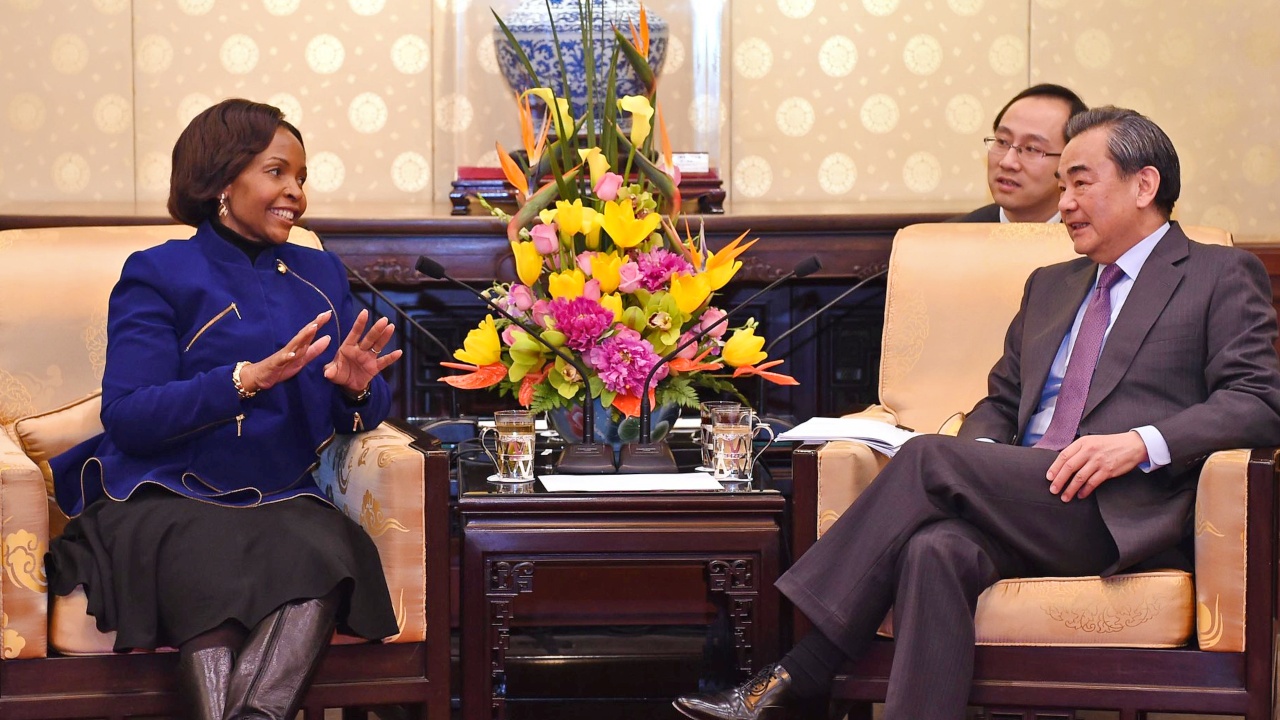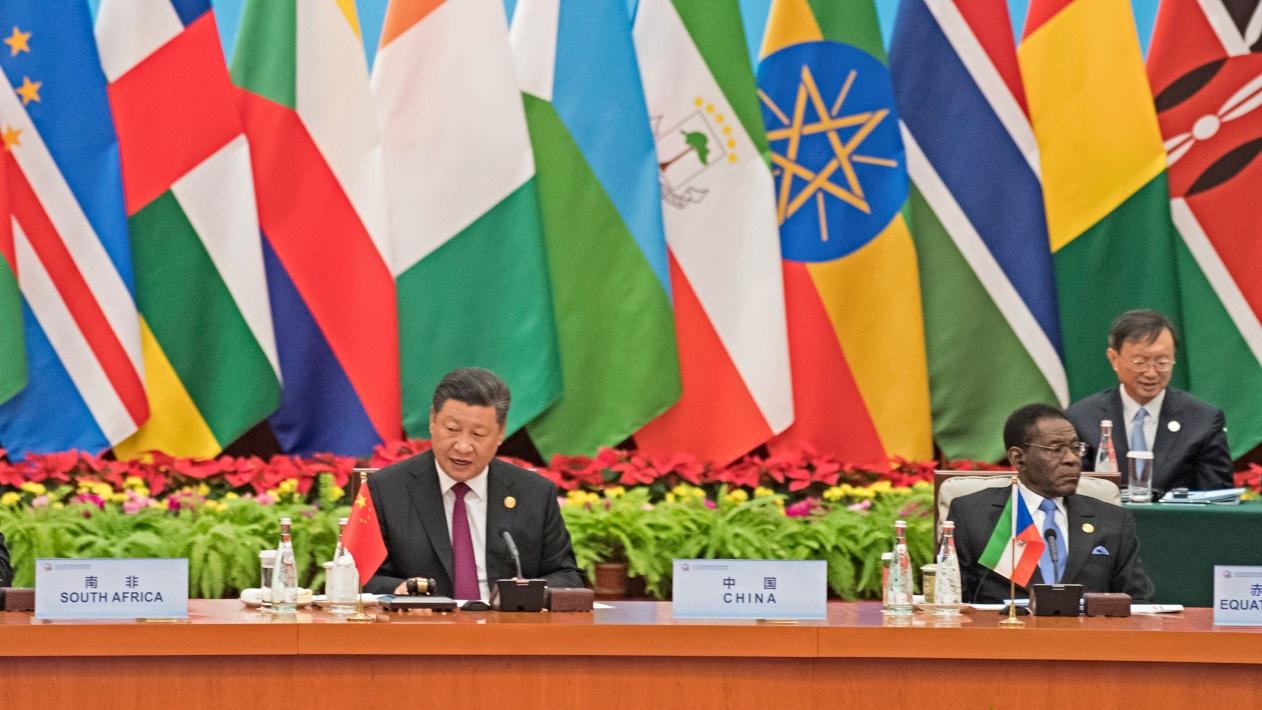Physics plays a crucial role in helping to solve real-world problems, such as climate change. But funding for the science in African universities remains severely limited. New international partnerships can support the development of physics on the continent, says Rachel Youngman, with stronger frameworks for international projects strengthening the ability to tackle global challenges collectively.
Seeing heads of state from across the Commonwealth gather in Rwanda last week drew the world’s attention to the issue of climate change and the role that development of science in Africa can play in tackling environmental issues.
Physics, in particular, plays a crucial role in helping us to solve real-world problems, such as climate change. It has helped us understand natural phenomena and biological processes throughout history, and physics research and innovation have produced some of our most important technological advances ranging from weather forecasting to vital drug developments.
When it comes to the UK’s joint research with global regions, Africa is the partner with the smallest share of physics projects, which is affecting global contributions to the United Nation’s sustainable development goals. In 2019, the Institute of Physics found that out of more than 4,000 relevant collaborative research projects across sub-Saharan Africa (SSA) with the UK, only 5.5% involved physics. And in a further study that included 50 African universities that we undertook in support of the proposal, some 86% of respondents reporting challenges in attracting and retaining physics students compared to other science subjects. Individual universities reported less than 1 in 100 science undergraduates choosing physics.
So we at the Institute of Physics (IOP), in collaboration with physicists in the UK and Africa, have published a report calling for the UK government to award £20 million extra funding to physics-based research in Africa.
Support for African physics
These statistics prompted us to ask the UK government for funding to understand the causes. What are the barriers for physics not being more prominent in Africa? And how could the continent and the UK benefit if there were a properly funded programme for improving physics education, research and infrastructure? Our findings, commissioned by the UK Government’s Department for Business, Energy and Industrial Strategy (BEIS), make a strong case for changes that will support international collaboration on research projects with SSA countries.
BEIS asked the Institute of Physics to investigate what the barriers are, and what benefits would emerge from extra funding. The result was that our feasibility study, carried out in conjunction with the Association of Commonwealth Universities and with experts in Africa and the UK, identified key areas where support is needed, which are: training and education, gender inclusivity, academic and staff capacity, innovation and commercialisation, and collaboration and networks.
Support for just a few of these key factors would have an enormous impact on physics research in Africa and its potential in developing climate change solutions. In turn this would help to strengthen Africa’s contribution to the UN’s sustainable development goals.
It was perhaps not surprising to hear a common call from the scientists and educators we spoke to in Kenya, Tanzania, Uganda, South Africa and Rwanda that better awareness of the benefits of, as well as access to, facilities and improved collaboration between academics and industry are crucial to strengthening R&D and innovation. We know there are enormous benefits to be gained from increased access to large-scale research facilities.
The Square Kilometre Array, to be based in South Africa, and other large-scale research facilities currently under development provide excellent opportunities to give young scientists international experience and to collaborate with top scientists from around the world. Africa is currently the only continent without a light source facility and the proposed continent-wide African Light Source Initiative would bring enormous benefits to the frontline work on energy, climate and weather and health.
Developing a global physics research community
African countries are at the sharp end of the impact of climate change, which we see in towns and villages across the continent, including the increased displacement of communities. I was struck by recent conversations with universities in Kenya who spoke of the environmental impact seen in the region around Lake Victoria on the Ugandan border. Those impacts are real and happening now, so there is a clear urgency for this work. By partnering, we in the UK can support but also learn.
Perhaps the starkest message from the study is a problem that is familiar to those of us working in the UK. Physics needs more people. All the countries in the study stressed a lack of teaching and research staff, as well as skilled technicians who can maintain research equipment. But there are not enough young people coming into, and continuing with, a higher education in physics. The subject needs to be seen by African students as a viable option, and resources need funding in order to do this.
In common with the UK, the main barrier to African students studying physics relates to the perception of limited career prospects. One way to overcome this is better encouragement for students, particularly young women and girls, by clarifying the importance of the subject and the career opportunities. Other solutions must be found, such as showing the relevance of the curriculum to the real-life challenges that are facing Africa and the rest of the world. This is not to say we should take from one science to give to physics but about broadening accessibility to all sciences.
In order to develop joint projects across international boundaries, it’s vital that we support the growth of research communities in areas where their development is currently hindered. It is in the best interests of society around the world that we develop climate solutions that are fair and accessible. Support is about exactly that: working together for the benefit of the continent is about funding to enable international collaboration for progression with global benefits. The pandemic has shown how easily the inequality gap can widen during a crisis, and it is incumbent on all of us to ensure that similar effects are not felt from a failure to mitigate climate change.
Sub-Saharan Africa, home to more than 1 billion people, half of whom will be under 25 years old by 2050, is a diverse region offering significant human and natural resources that have the potential to yield inclusive and sustainable growth. There are positive opportunities to invest and build long-term partnerships in Africa and forge closer ties on economic, security and technology issues.
Having spent many years working on programmes in the countries where we conducted our research, I don’t believe the challenge for physics should be seen as development aid for Africa. We are partners in fighting climate change. As a global society, we need our scientists to find solutions that are accessible for us all, regardless of where we live. The international physics research community needs access to a diverse range of people to achieve that ambition. We need to nurture the development of research communities in Africa so that we can build a stronger framework for international projects that benefit everyone. There are great opportunities in Africa to build on what is already in place.
The pandemic has stalled the movement of people around the globe, making international collaborations more difficult to pursue. But as the world begins to recover, it’s important that we press hard for the movement of scientists and access to funding that can support the multi-country approach to research. That is as important between countries in Africa as it is elsewhere.
Science, and physics in particular, thrives on diversity of background. Only by working together and implementing changes, like those laid out in this study, can we hope to tackle the climate change crisis in a way that is effective, collaborative and fair for everyone.
Photo by Monstera.






A very interesting article on Physics and climate change in SSA. Joint projects across international boundaries are surely the way to go. There is a need for more coorporation in Physic Education now than ever before in the face of climate change.
Imagine there has never been a university that offers Physics MSc or PhD in Malawi. My estimation is that there are currently less than 5 Malawian Physics PhD holders and less than 20 Physics MSc holders working in Malawi. There were only six physics majors in my class, 4 of which switched to banking, business and IT. Am teaching Physics in a High School and the other(a PhD holder) is lecturing at Mzuzu University in Malawi. It is extremely difficult for go beyond the first Physics degree from Malawi and Physics is far behind Chemistry, Biology and Mathematics. We are wasting a lot of human resource in Malawi. This must change.
Universities in Malawi and all of SSA would greatly benefit from the proposed corporation to promote the Physics image and very importantly research in SSA. I taught in government secondary school and I know there are so many brilliant young malawian students who would be attracted to study physics. I look forward to the actualization of the proposed initiatives and would be willing to give a hand if needed.
Looking forward to a better Physics future in SSA.